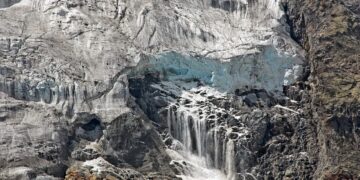Understanding the Terms: Global Warming and Climate Change
When discussing environmental issues, terms like “global warming” and “climate change” are often used interchangeably, but they do not exactly mean the same thing. Understanding the distinction and the impact of each term is crucial for a comprehensive grasp of our planet’s environmental challenges.
Defining Global Warming and Climate Change
Global Warming refers specifically to the increase in Earth’s global surface temperature due to rising levels of greenhouse gases. This phenomenon is chiefly attributed to human activities, notably the burning of fossil fuels, which elevates concentrations of carbon dioxide in the atmosphere.
Climate Change, on the other hand, encompasses global warming but also includes other changes in the Earth’s climate system, such as changes in precipitation patterns, extreme weather events, glacier retreat, and shifts in wildlife populations and habitats. These changes are occurring at different rates and intensities across the globe.
Exploring the Causes
Both global warming and climate change are primarily driven by human activities, including deforestation, industrialization, and urbanization, alongside natural factors like volcanic eruptions and variations in solar radiation. The accumulation of greenhouse gases like carbon dioxide, methane, and nitrous oxide traps heat in the Earth’s atmosphere, leading to various climatic shifts.
Examining the Effects
The effects of global warming are often immediate and measurable, including increased temperatures, melting polar ice, and rising sea levels. In contrast, climate change comprises broader effects, such as more intense and frequent hurricanes, unpredictable weather patterns, and diverse impacts on ecosystems and biodiversity.
Impact on Ecosystems and Biodiversity
Climate change affects numerous ecosystems which disrupts biological interactions and can lead to species extinction. Forests, oceans, and freshwater systems all suffer different impacts, altering both flora and fauna. Coral bleaching, forest fires, and the migration of species to cooler areas are stark evidence of these shifts.
Human Health and Socio-Economic Effects
Human health is directly affected through the increase in heatwaves, which contributes to heat-related illnesses and deaths. Changes in climate can also affect water and food supply, potentially leading to malnutrition and waterborne diseases. Socio-economically, effects can be severe in communities dependent on agriculture or coastal and marine industries.
Global Responses and Solutions
Addressing both global warming and climate change requires concerted global efforts. International agreements like the Paris Agreement aim to cap the rise in global temperatures. Technological advances also offer some hope through clean energy solutions, carbon capture and storage technologies, and sustainable urban planning.
Political and Economic Challenges
Effective policy and economic strategies need to consider variable national interests and capacities. Developing nations, often the least equipped to cope with climatic changes, require support through finance, technology, and capacity-building measures from more developed countries.
Educational and Community Initiatives
Raising awareness through education can empower communities to adopt more sustainable practices such as recycling, using energy-efficient devices, and supporting eco-friendly policies. Community-driven initiatives can significantly impact local and global mitigation efforts.
Frequently Asked Questions
Is climate change worse than global warming?
It is not about comparing which is worse as both are interlinked aspects of the same issue. Climate change covers a broader range of changes and is hence more comprehensive; however, tackling global warming is integral to addressing climate change.
Can individual actions really make a difference in combating climate change?
Yes, individual actions can contribute positively. Simple actions like reducing energy consumption, minimizing waste, and using public transport can collectively lead to significant environmental benefits. Public pressure and voter behavior can also influence political actions.
Are the effects of global warming reversible?
While some effects may be irreversible, especially those related to extinct species and lost habitats, global warming can be slowed, and its effects can be managed better with coordinated global action and advanced technologies.
Conclusion
Understanding the nuances between global warming and climate change is essential for effective communication and action on these pressing issues. While they may differ in scope, both require urgent attention and global cooperation to ensure a sustainable future for all.
This structured approach provides a comprehensive overview of global warming and climate change, distinguishing between their causes, effects, and possible mitigation strategies. The enhanced readability and SEO optimization make it accessible and engaging for a wide audience.











